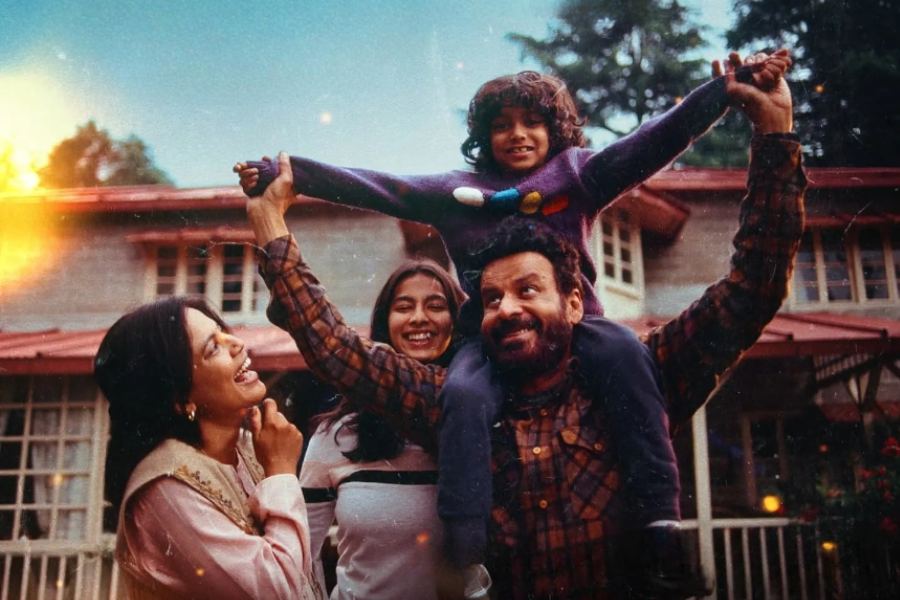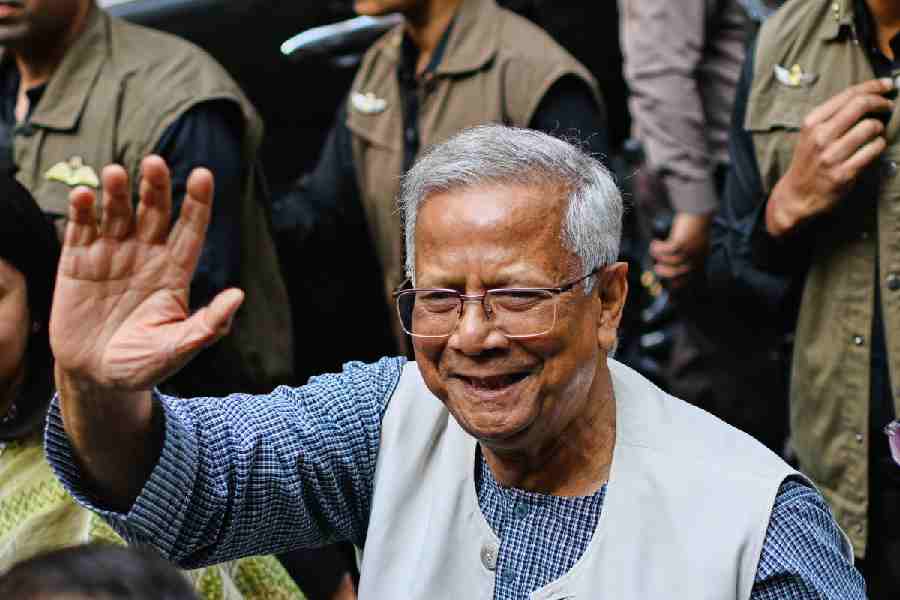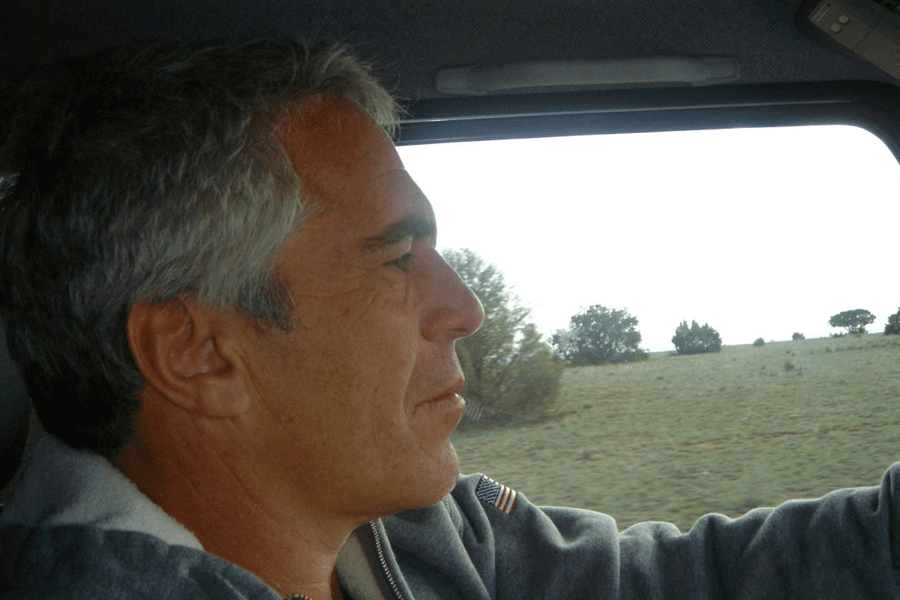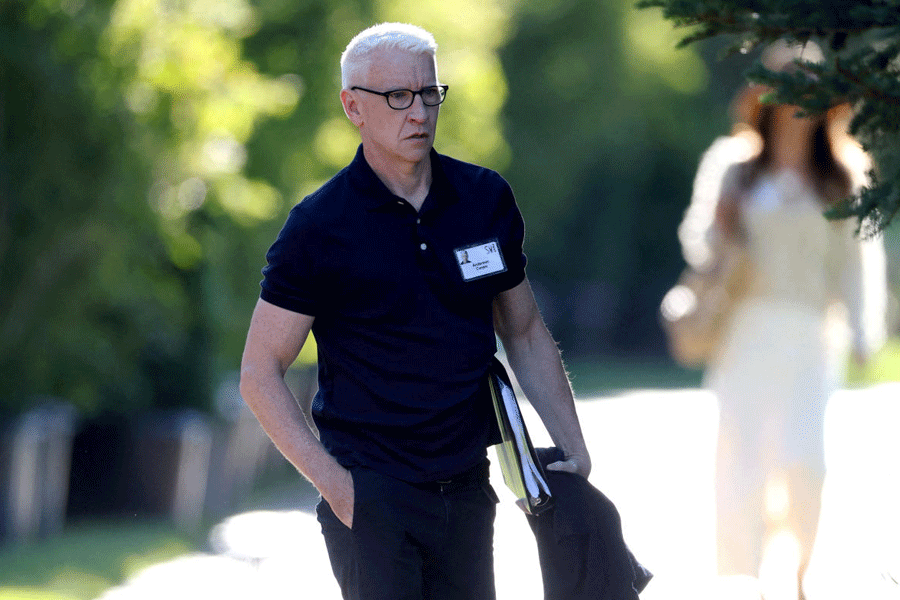Some stories are best enjoyed in their silent frames. Raam Reddy’s latest directorial Jugnuma, starring Manoj Bajpayee in the lead, belongs to this genre. Set in a quaint hillside village in the Himalayas, the film offers a nuanced exploration of the debate around land ownership, immigration and privilege as the environment itself seems to turn against humans.
It is set in the late 1980s, when Indian society was undergoing a churning.
The story revolves around Dev (Manoj Bajpayee), an estate owner whose orchards once belonged to the British. He is aware of his privilege and presides over his land with calm authority. Yet his yearning for constant surveillance — he builds a pair of wings for himself — betrays a growing insecurity. He glides above the hills, scanning his property and those who work it, as if fearing they may abandon or betray him.
Dev’s wife Nandini (Priyanka Bose) is a homemaker. Their daughter Vanya (Hiral Sidhu) is the textbook teenager grappling with questions about freedom and sexuality. Her curiosity pulls her towards wandering lamas in the forest. The younger child, Juju, runs through the house with a video camera, recording moments with the innocence of play, unaware of how quickly their world is changing.
Dev’s mundane routine is upstaged when cherry trees in his estate mysteriously catch fire. The flames spread fast, devouring large sections of the estate. Dev’s composure starts to crack. Locals whisper of negligence; death of a worker’s relative intensifies the mistrust. Government officials, rather than offering solutions, stir the unrest. Dev’s trusted manager Mohan (Deepak Dobriyal) and Keshav, the workers’ leader, search for answers, but mistrust grows.
A parallel narrative underlines the film’s themes. Keshav’s wife (Tillotama Shome), in one scene, tells her children fairy tales of spirits reclaiming lost creatures. These bedtime stories, apparently simple tales, serve as a warning. Nature, she implies, will not be ignored forever. The slow decline in the presence of fireflies in the garden, once a source of wonder, becomes a metaphor of ecological decline.
Despite the abundance of metaphors, Raam doesn’t underline his message with dialogue or exposition. The film’s power lies in its restraint.
Bajpayee’s performance is a masterclass in emoting with silence. He never shouts, never loses control or veer into melodrama. Instead, the actor lets his body language do the talking, be it the flicker of worry in his eyes or the slight stiffening of his shoulders.
The rest of the cast complements his performance. Deepak Dobriyal’s Mohan is the epitome of loyalty, who refuses to stop serving Dev even when the latter stops trusting him. Priyanka Bose plays the doting wife to Dev. Hiral Sidhu effectively portrays Vanya as a breath of fresh air in a world weighed down by fear. Even Shome’s brief appearance leaves an impact.
From its opening frame, shot on grainy 16mm, Jugnuma stands out in the milieu. The texture of the frames, shot by cinematographer Sunil Borkar, feel like worn-out photos that were lying unattended inside trunks.
Sound plays an equal role in atmosphere building. Nithin Lukose’s subtle soundscape — rustling leaves, distant thunder, insect calls, and the relentless crackling of fire — immerses the viewer in the film’s slow-burning narrative.










